One of the major discussion points for digital marketers as we exit 2021 & enter 2022 is how Google Chrome no longer supporting third-party cookies will impact marketers & their data, as well as users & their user experience.
This is logical, given that 65% of all global web traffic takes place in a Chrome browser; however it is worth noting that the rest of traffic for the most part is already taking place in browsers that do not support third-party cookies.
Ultimately, this will cause shifts in the optimization & analytics space, as well as in the AdTech space as well, and will add an additional variable into how businesses & consumers continue to change their behaviors as they adapt to life after the pandemic & the constant evolution of technology.
The following commentary is based on slides that I presented as a guest lecture at NYU for a group of MBA marketing candidates last week.
What Are Third-Party HTTP Cookies?
While there are different types of cookies, we will be focusing specifically on third-party HTTP cookies in this discussion, as those are the ones that are used for website browsing.
HTTP cookies are files that are stored in a web browser after a user has made a connection to a website’s server, that are used to collect various bits of information about the browser’s visit.
Different cookies will collect different bits of information, depending on what they are being used for.
In recent years, privacy activists have pushed for stricter rules & regulations on what cookies can store & more transparency between websites & end users on cookies.
This is in part why when you visit a website for the first time, you often have to click to consenting to accept their cookie policy, which ironically stops popping up once your browser shows the cookie that says you’re a return user.
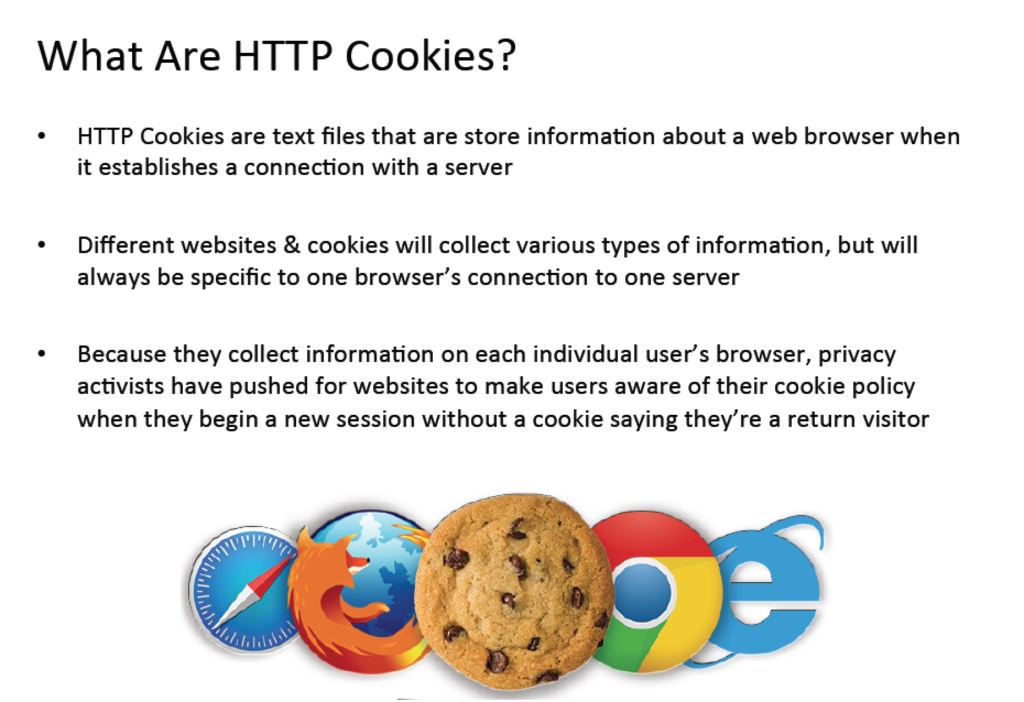
Third-party cookies are cookies that are generated by a source other than the website that you are browsing, but that are still a part of the site’s page loading file sequence.
This is in contrast to first-party cookies, which are generated directly by the website that you are viewing.
Third-party cookies tend to be associated with marketing platforms, to collect & share data about what ads are most relevant to show a user based on their browsing trends.
These trends can be tracked across a variety of websites, pending on the cookie policies of each site, including on sites that are unrelated to one another.
Due to this, people tend to view first-party cookies as safer & more trustworthy, pending that the site that they came from is safe in the first place.
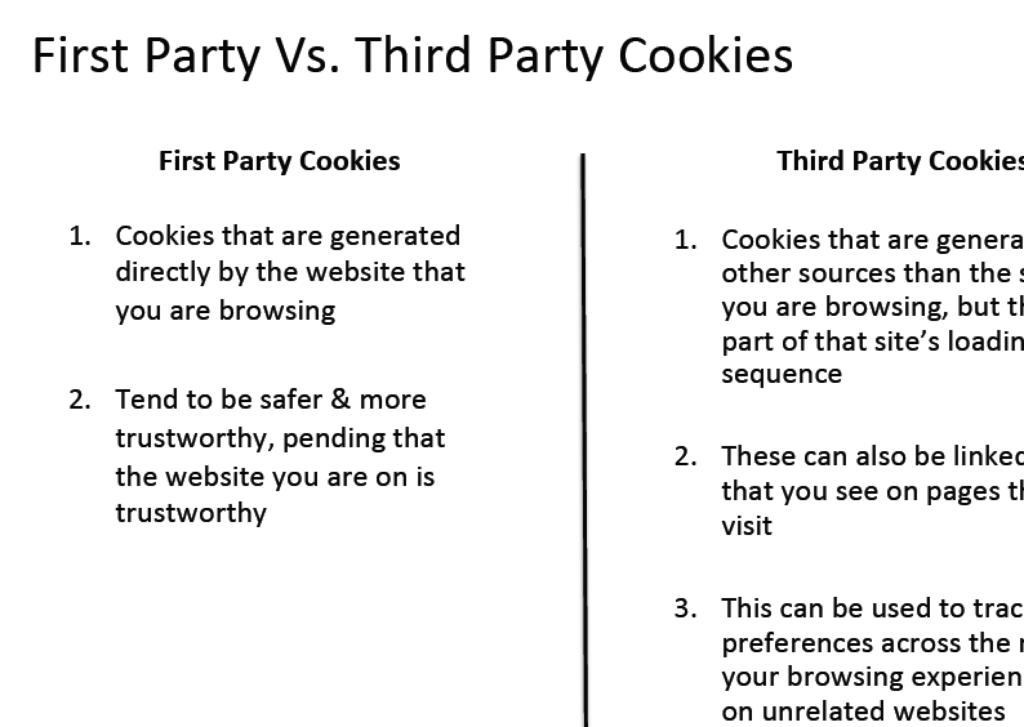
How Do Website Cookies Work?
When a user goes to load a webpage, their browser begins making a series of requests to the website’s server that it is hosted on, at the URL’s address.
Each webpage is made up of a variety of individual files, that load to create the experience that the end user is able to view & interact with in their browser.
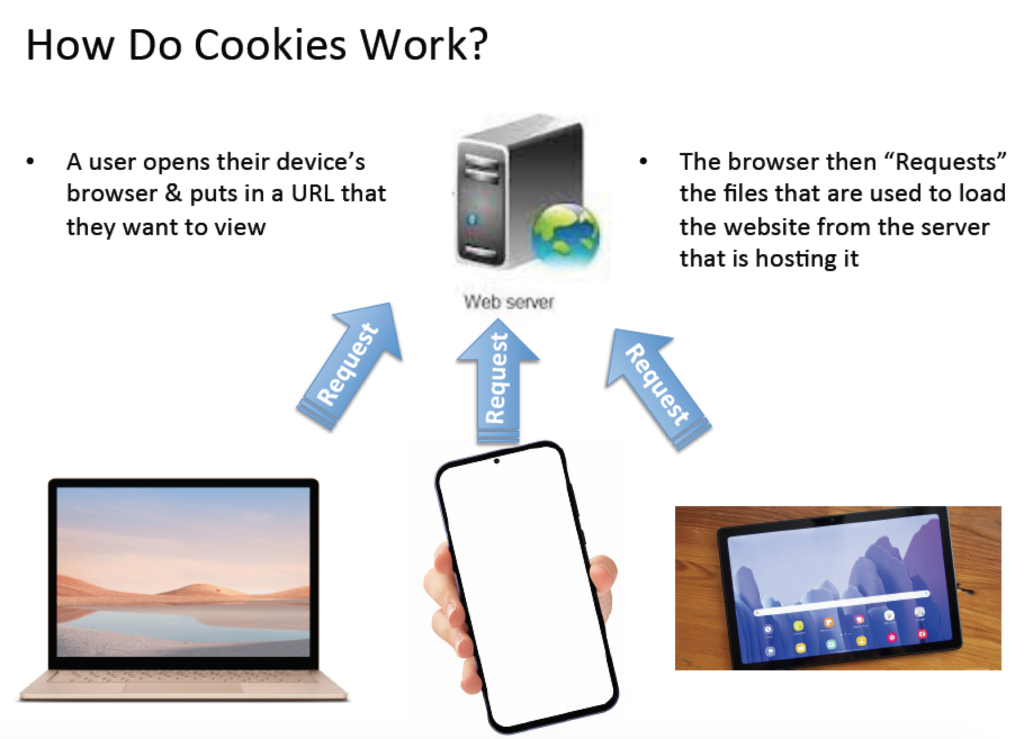
The server then retrieves the individual files required to load the page & returns them to the browser, in what is known as a Response.
Cookies are files that are included in the server’s response; although they are not seen by the end user in their browser window once the page has loaded.
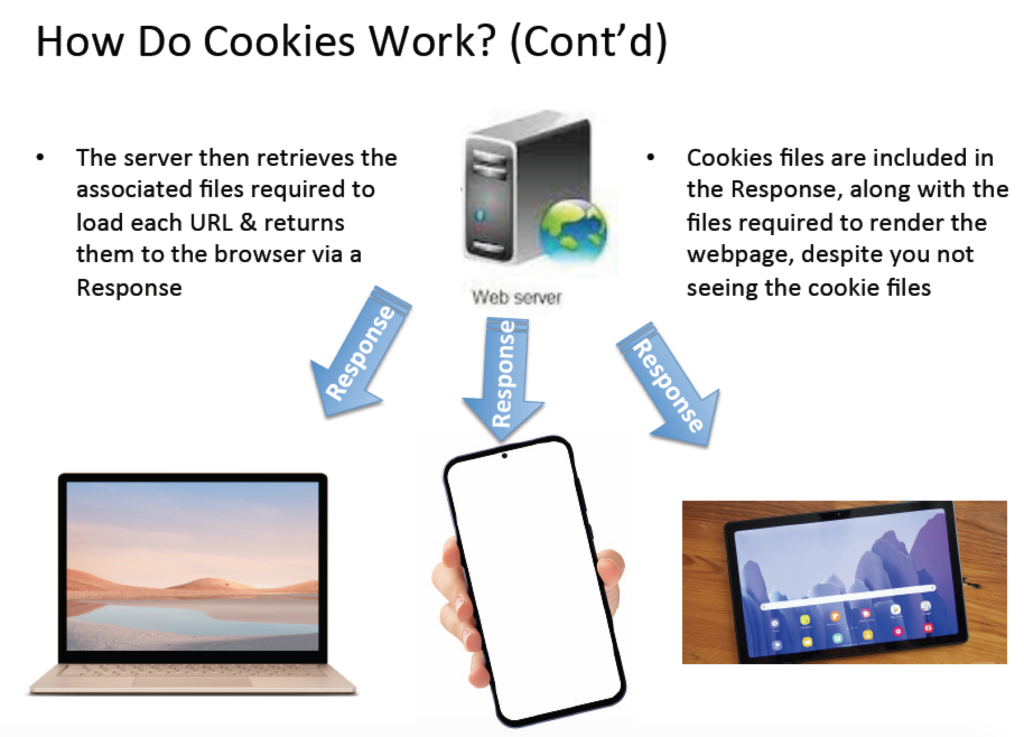
Once the page loads, the cookie is stored in the user’s browser, until either a set expiration, or until the user deletes their browser cookies.
Cookies Impact The Performance Of Your Website, Including Page Load Speed
The more cookies that a website is using, the greater the amount of requests & responses have to take place in order for a page to load.
This adds more time to the page’s total page load speed, which adversely impacts user experience & can also negatively impact a website’s rankings, and ability to be featured on the broadest variety of Search Engine Results Pages (SERPs).
The slide below features an image showing a website that requires 235 requests in order to load the webpage (which is quite a lot), of which 20%+ is third-party cookies & tracking tags.
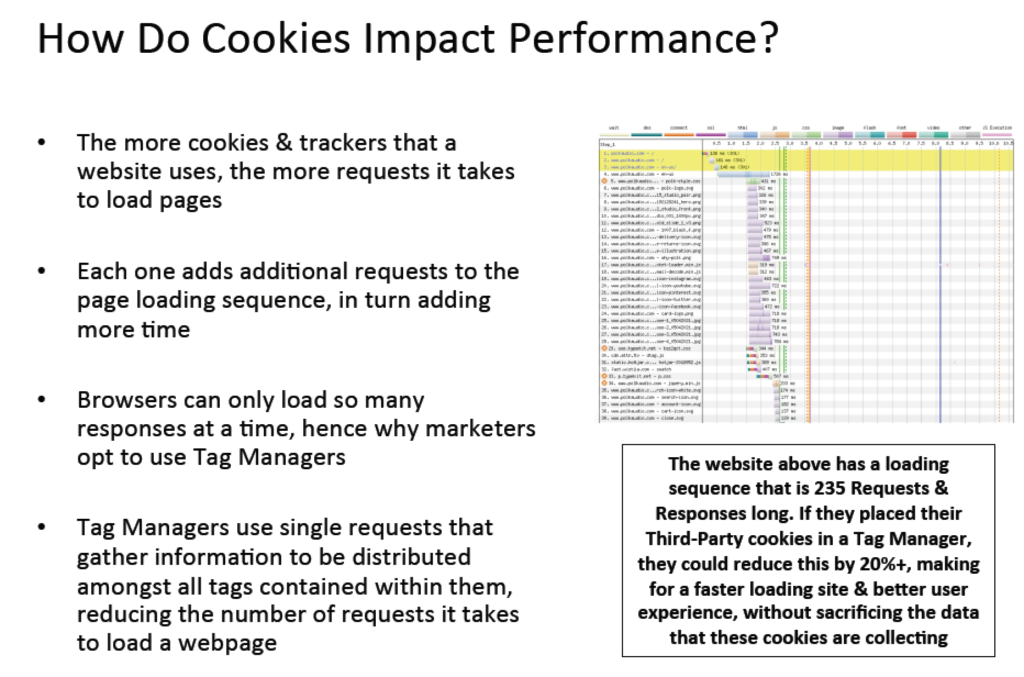
As a browser can only process so many requests at once, marketers began to use tag managers in order to reduce the required requests/responses to one (lowering load times), while still being able to obtain the information that the tracking tags required.
How Do Digital Marketers Use Cookies?
Cookies are used by digital marketers to track user behavior across their websites & to provide personalized experiences.
Ad platforms can also access cookies from a variety of sites in a user’s browser, and use the non-private information to determine what ads to show a browser that are relevant to their interests.
Private information, such as saved login credentials on a website are also handled by cookies, but that information is not shared in the third-party cookies that we are discussing that related to ads & targeting.
Marketers can also use the information stored in cookies to learn about a user’s interactions with their site, in order to fuel future content strategy, as well as optimizations for existing content that is not converting well or providing a good user experience.
Cookies are also used for re-targeting users who have been to display ads for things like sponsored social media posts, when a marketer can target a user who has been to their site prior, who is browsing the social media platform.
Abandoned carts are also tracked by cookies, which enables webmasters to target users with display ads for the products that they almost purchased, in hopes to get a user to come back & convert.
Personalization preferences are also provided by the use of cookies, which help websites to serve users the most relevant content & unique experiences that cater to their tastes.
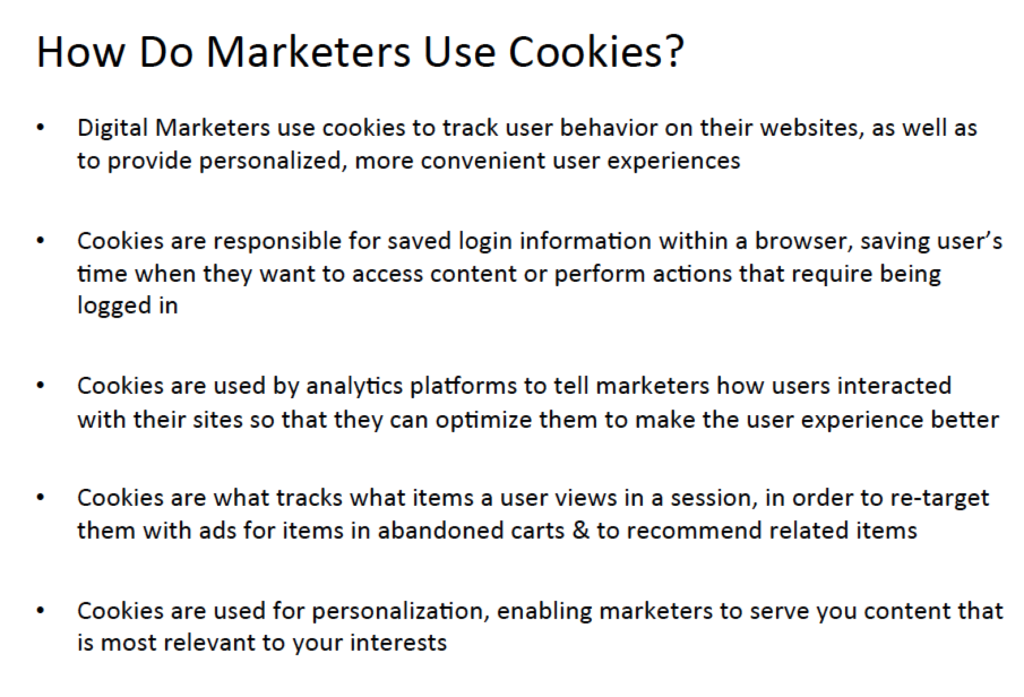
What Makes Google Chrome’s Announcement So Special?
As noted above, 65% of all traffic online comes from a Google Chrome browser; 68% of desktop browsing & 64% of mobile browsing, respectively.
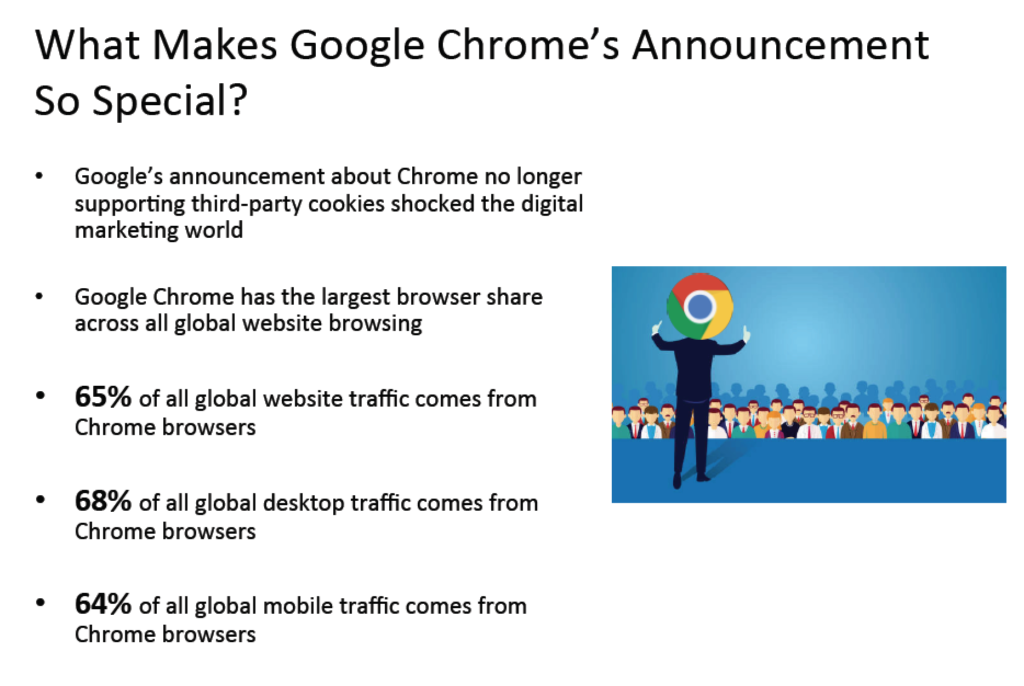
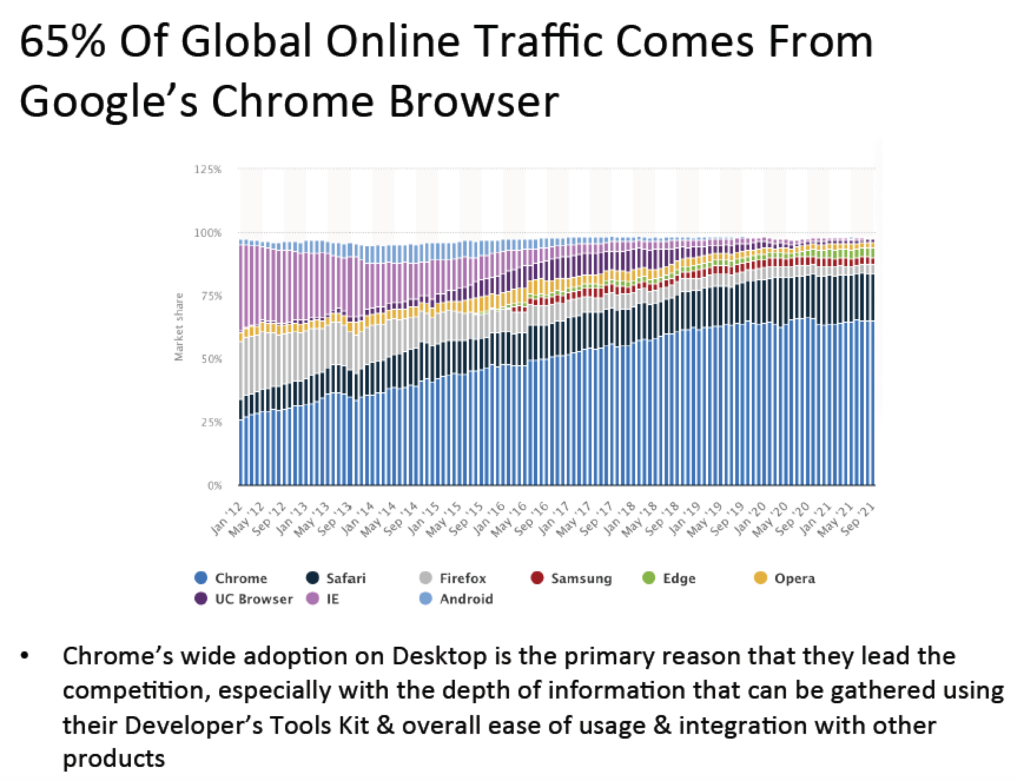
Chrome’s desktop dominance makes sense, given their superior developer toolkit, as well as their array of useful browser extensions & plugins.
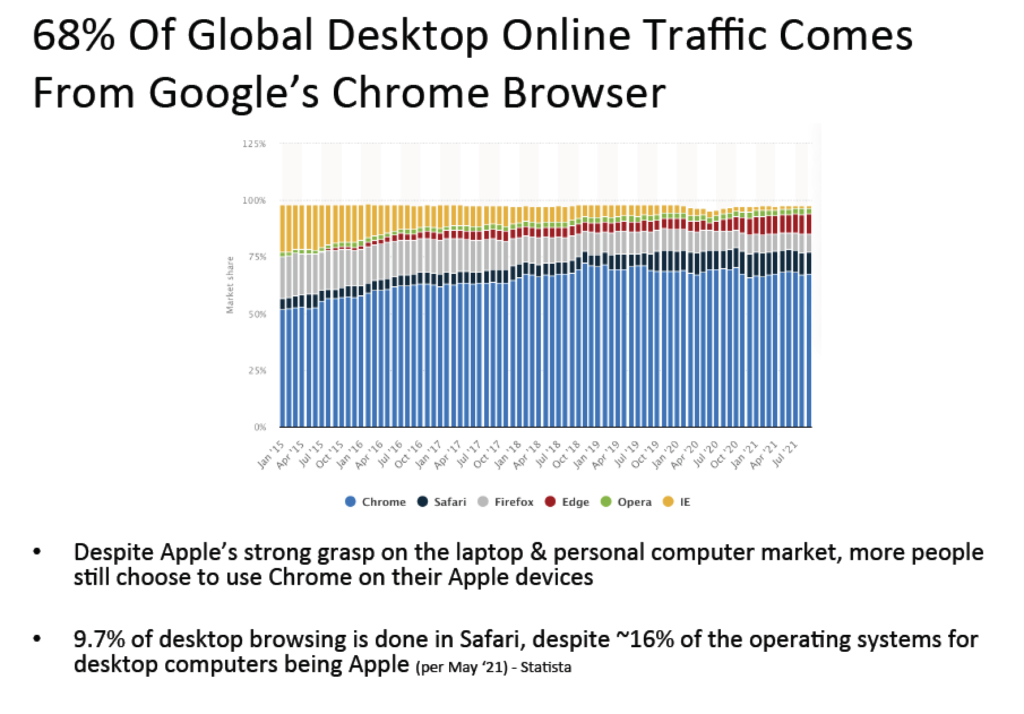
Something interesting in the desktop browsing numbers is that Apple’s share of desktop operating systems is ~16%, but only 9.7% of desktop users use Safari as their browser.
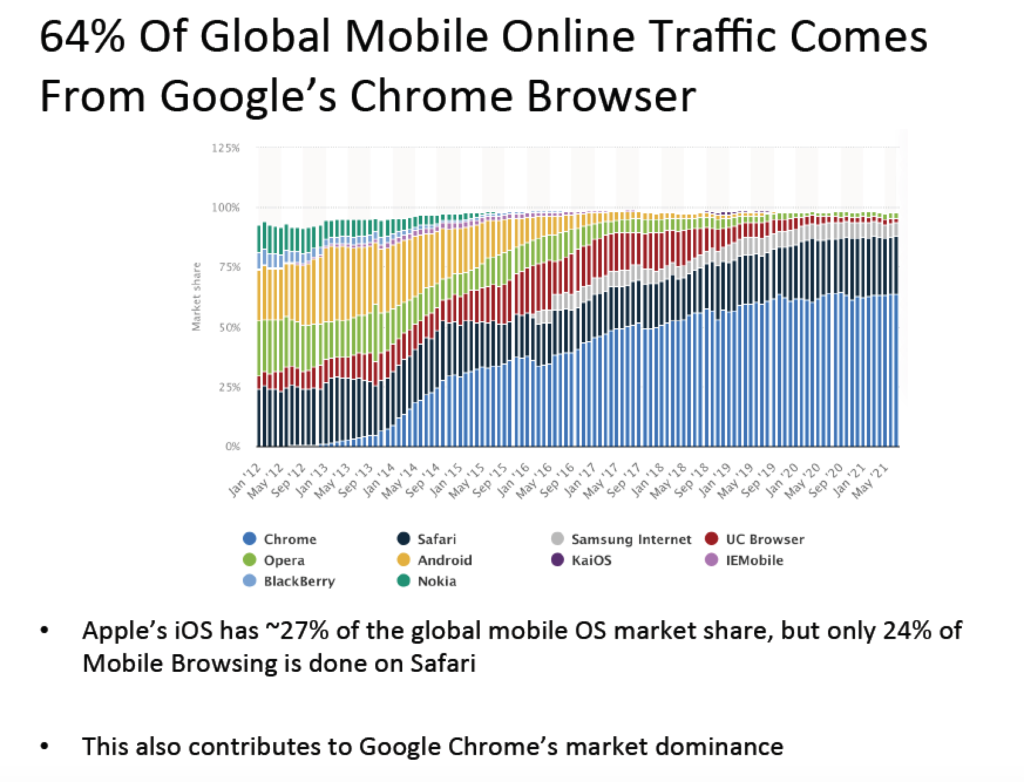
Another interesting fact about mobile online browsing, is that despite Apple’s iOS having 27% of mobile global OS marketshare, only 24% of all mobile browsing is done in Safari.
What Is The Federated Learning Of Cohorts or FLoC?
Google has proposed using the Federated Learning of Cohorts, also known as FLoC as a new means of replacing Third-Party HTTP cookies once Chrome no longer supports them.
Their goal is to use this system as a means of relaying all the information that cookies would’ve gathered for marketers & their advertisements, while also making the end user more anonymous.
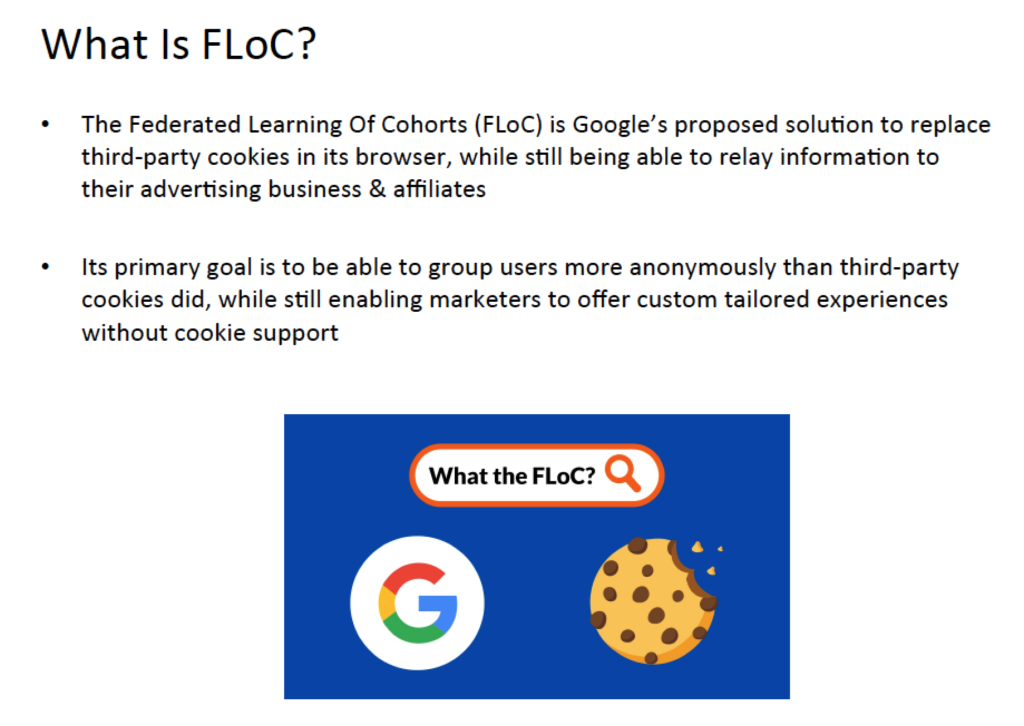
How FLoC Works
FLoC tracks the activities of a user as they browse the web, while anonymously grouping them into Cohort ID’s with other users who have similar browsing histories & preferences.
It is said that each Cohort ID will have a minimum requirement of 1,000+ users, in order to anonymize the users contained within them.
As part of the anonymization process, Cohort IDs will not contain labeled information beyond numbers, leaving marketers more work to do to figure out how to find their target audiences.
One area of concern for privacy advocates is that the websites & companies who opt into using FLoC will now be able to work with more information related to a user’s overall browsing history than was previously available using the third-party cookie method.
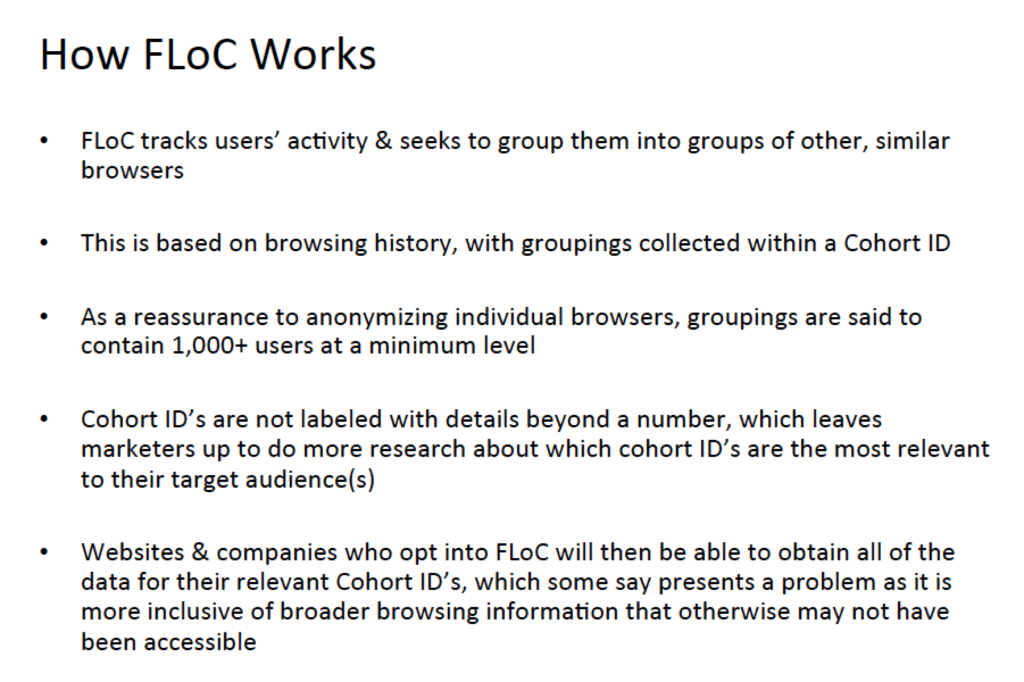
Hypothetical Example Of How Federated Learning of Cohorts FLoC Works
For a hypothetical example, lets say that a user’s browsing history is for luxury apparel, golfing & golf equipment, makeup & legal research.
Once there are 1,000+ users who have the same/highly similar histories, they will be entered into a Cohort ID together.
User will continue to browse, let’s say looking at boats, grilling recipes & Boston sports teams.
Additional Cohort IDs will continue to be populated based on users with overlapping history interests, grouping them up into more, very-highly targeted segments of users, as it is based on their browsing history.
Marketers & AdTech services can then figure out which personalized experience & customizations they can offer to each Cohort ID based around their different tastes, while also targeting all new users who become members of the Cohort ID.
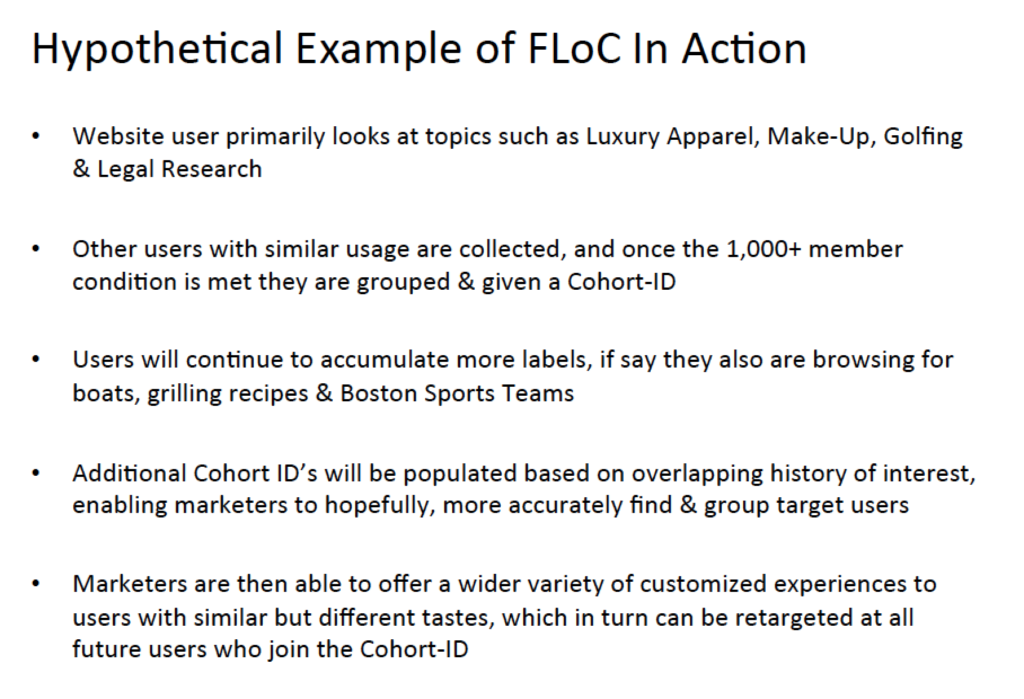
As user preferences change, additional Cohort IDs will be generated once the 1,000+ minimum user threshold has been reached.
This cycle will then continue onwards, making companies that operate on third-party cookies need to either become tag manager-friendly, create a new custom solution to obtain their data, or possibly face becoming obsolete.
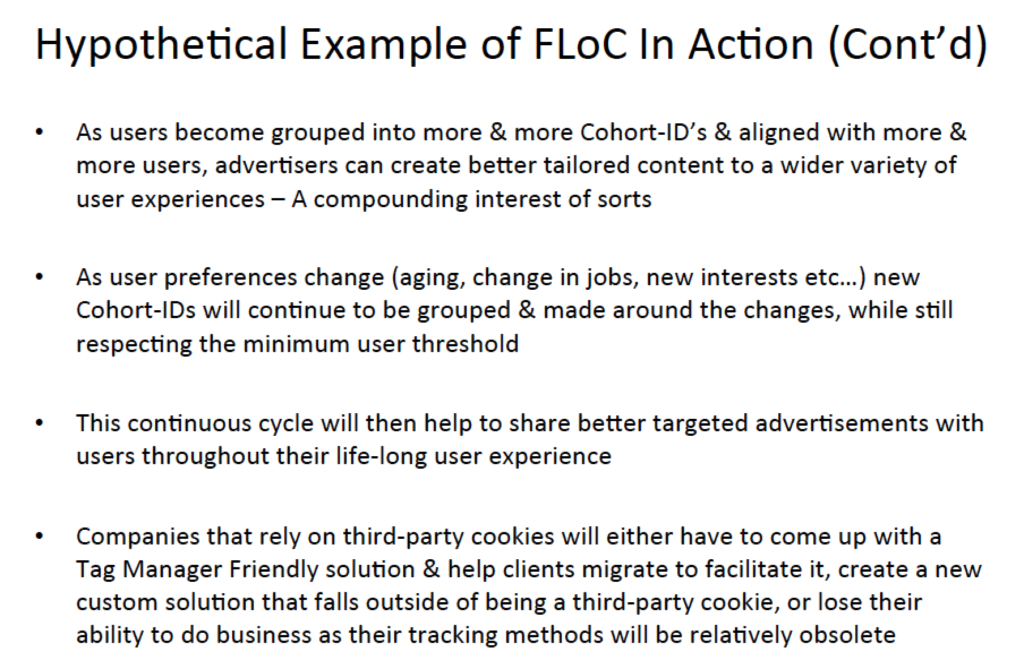
Reception To The Federated Learning of Cohorts FLoC By Google & Those Who Oppose It
Google’s stance is that this system will better protect users as they will be grouped together in mass quantities, while remaining hidden behind a Cohort ID, enhancing privacy.
This will still enable them & marketers to offer highly custom tailored digital experiences based on user’s actual preferences.
Google will also remain the main data source for advertisers, and can benefit from the newer generations of life-long internet users & their data, a growing trend in age demographics that will pay them dividends in the future.
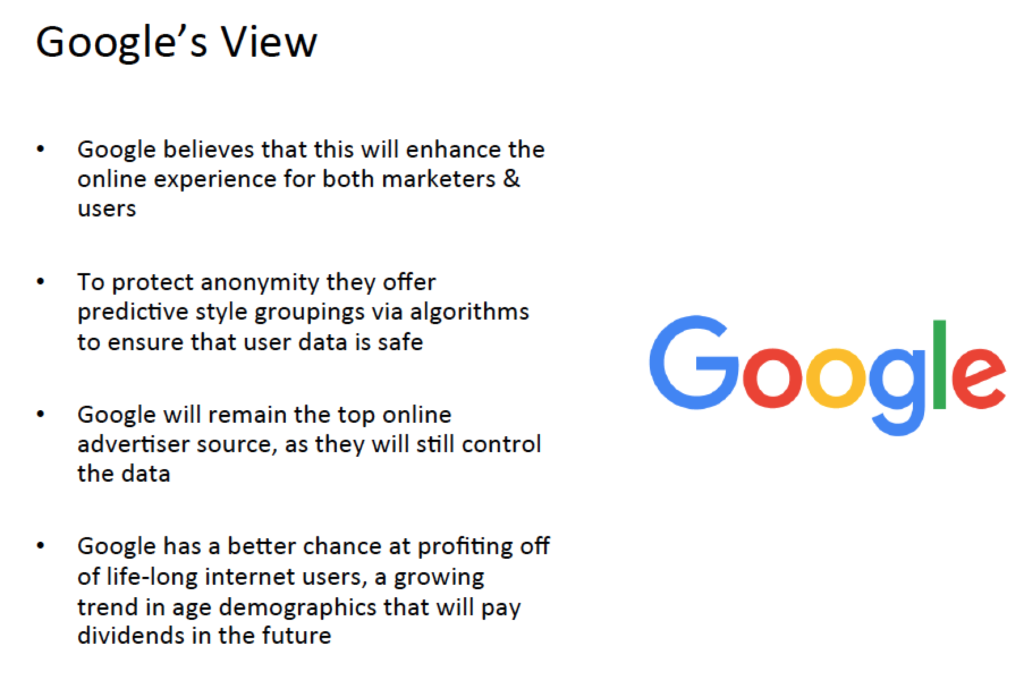
Opponents of FLoC believe that there is more privacy risk than before if FLoC is implemented, as those with the Cohort IDs will have access to more information than was previously available about a user’s macro browsing trends.
It has also been labeled as anti-competitive, as Google will have greater access to user data that they can distribute as they choose, which ultimately will harm smaller advertising players.
DuckDuckGo, a search engine that is dedicated to online user privacy has a Chrome browser extension, which has a setting that allows users to opt out of sharing data with FLoC.
Other companies also have similar options for users who are concerned with their privacy.
Most importantly, WordPress, who powers the CMS for over 41% of all websites globally, has said that it is debating not supporting FLoC on sites that use their platform & hosting options.
Even non-tech related companies & advocacy groups have expressed dissatisfaction with FLoC, saying how many personality & character traits that should remain private according to Google’s own privacy standards will be exposed to more websites than before.
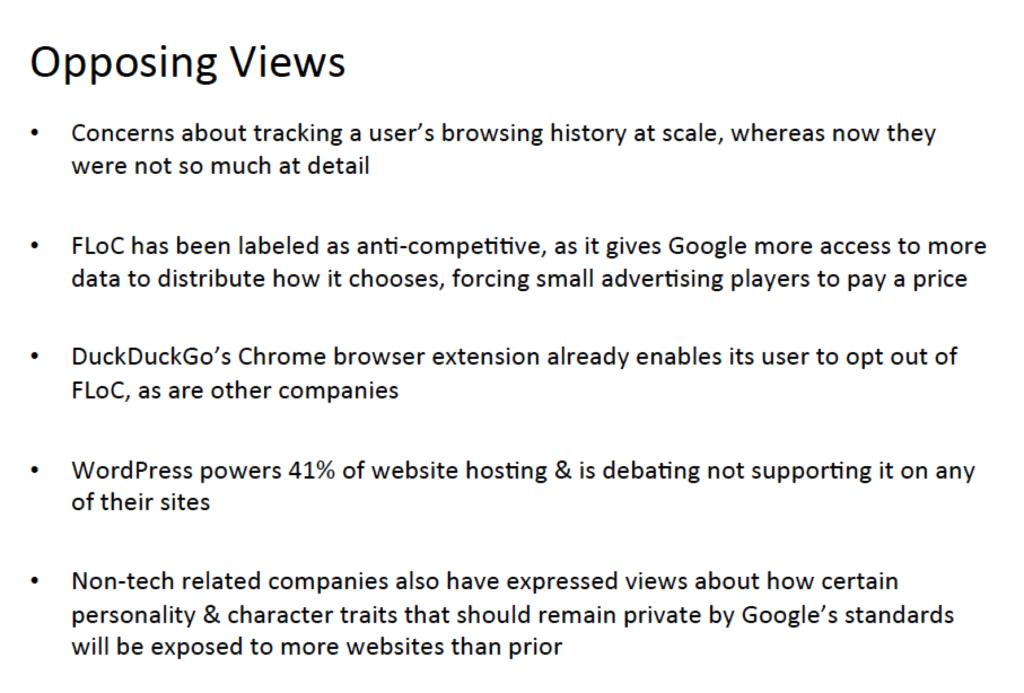
There have also been security concerns related to the Federated Learning of Cohorts, as it has been said that it can enable digital fingerprinting more easily than before.
Broader access to more user information than was previously available will make it much easier for malicious actors to access & target individual users based on their FLoC Cohort ID, especially if they are able to reverse engineer Cohort IDs & how they are put together.
The European Online Privacy initiatives of the last few years have also expressed issues with how the data is being collected & used, and given their opposition to other issues, it seems they’ll be more scrutinous regarding FLoC.
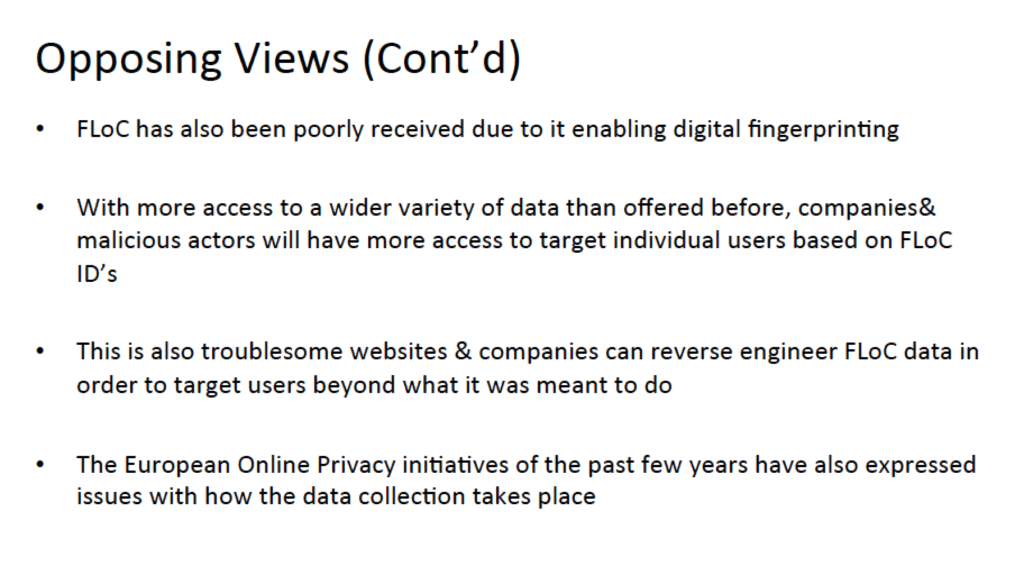
Benefits Of The Federated Learning Of Cohorts FLoC & Its Long-Term Impact
The primary benefit of FLoC is that by removing third-party cookies from webpages’ loading sequences, there will be a faster internet browsing experience that is wide spread.
Keep in mind that Google’s primary goal is to answer queries quickly & accurately, as if you asked someone sitting across the table from you the same question.
As mobile browsing became more & more popular, and mobile-first indexing took foot, this is something that Google has been herding webmasters to do for years with ranking requirements rewarding faster loading sites.
This of course implies that web masters will remove their legacy tools’ code, which we can’t guarantee at the moment.
Webmasters may choose to keep legacy code in their loading sequences in the event that FLoC is not adopted in the long-run, which is something that happens quite often with Google’s featured roll outs.
An example of that would be Accelerated Mobile Pages, or AMPs, which webmasters were bribed into creating in order for their content to be featured above organic results in between them & Paid results.
Over time, the AMP carousel has moved around on SERPs, and less & less results that you see are using AMP formats.
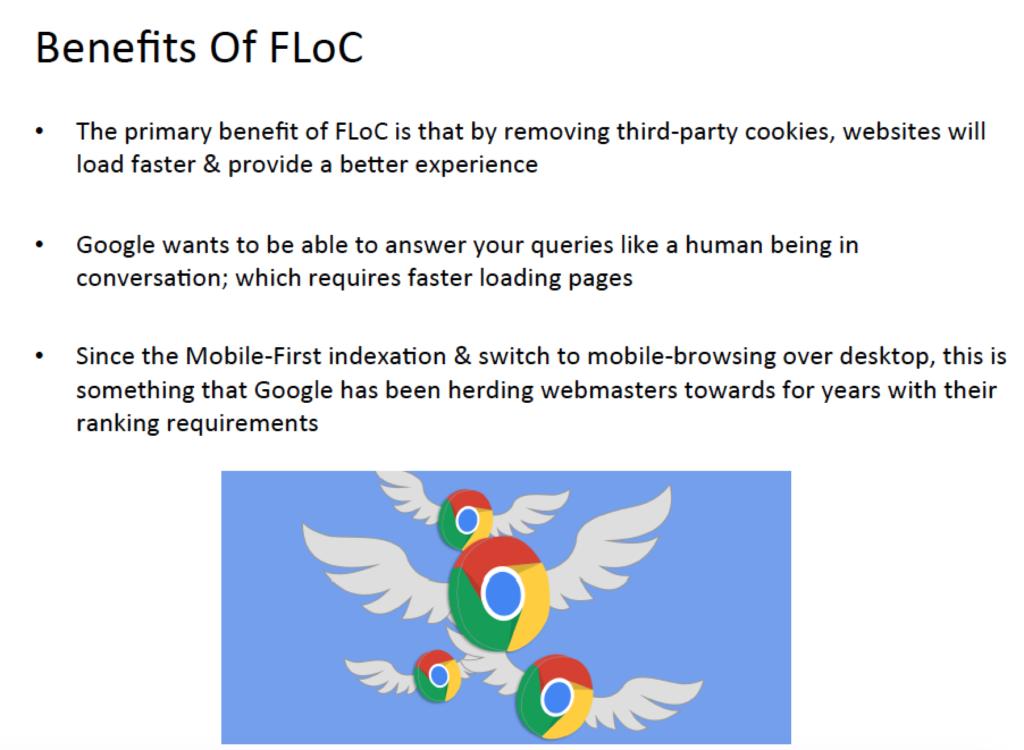
FLoC will give marketers a better means of targeting users than the existing methods, as it will feature more data to work with per user based on their broader Cohort ID.
A wider variety of referral content can be produced around these more targeted segments, although at the same time, the larger sample sizes can also potentially dilute the quality of these efforts.
If marketers are able to figure out Cohort IDs well, then they can anticipate an increase in overall user experience, as well as conversion rates.
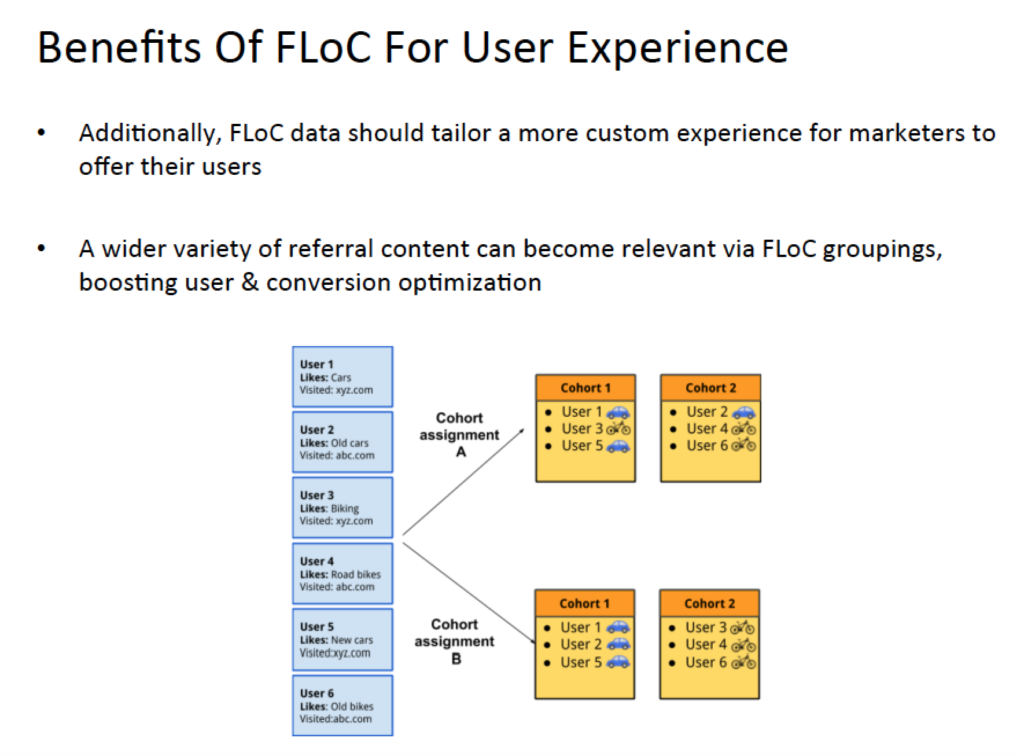
The Federated Learning of Cohorts can also inspire a new generation of innovation in the online marketing & AdTech space, as companies will need to find new ways to break down the data in Cohort IDs.
New user experience tools may also come from this, in order to meet the demands of personalized user experiences, while working within the confines of the new Cohort ID tracking method.
This of course may not happen immediately, as noted before that Google has been known to test something in the wild, only to abandon it later & change directions.
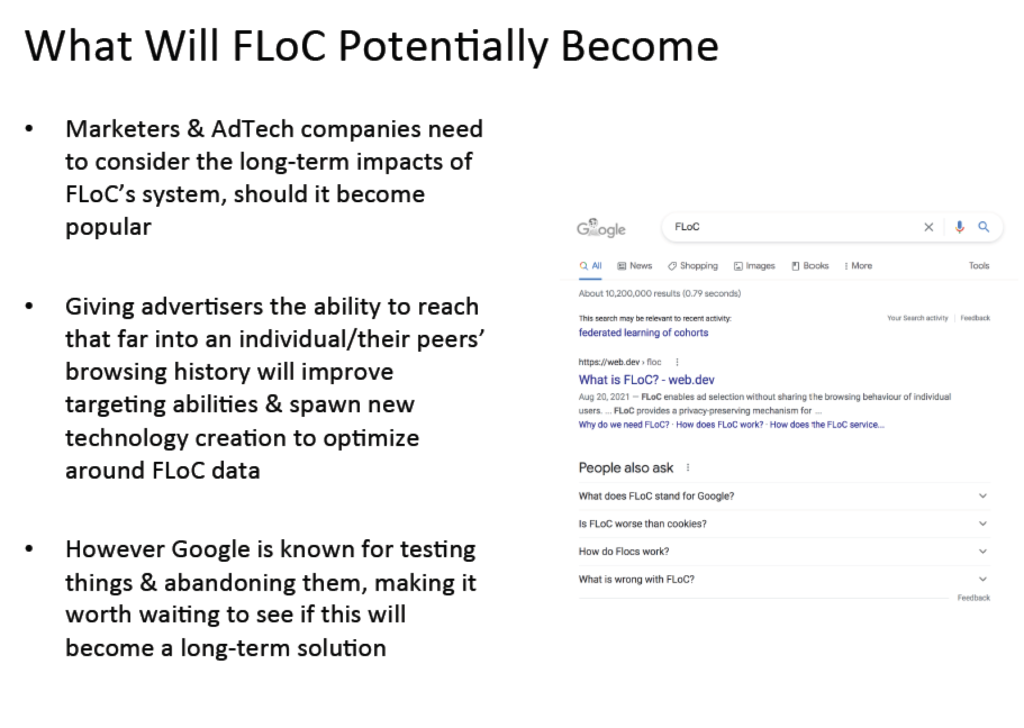
How Marketers & Webmasters Can Prepare To Adapt To The Federated Learning of Cohorts FLoC
While we do not know if FLoC will ever actually go live at scale, and if so how long lived it will be, there are things that marketers can do to prepare for it in the meantime.
AdTech companies will need to rethink how they collect their data, as even if FLoC does not work in the long-run, there are alternatives to using third-party cookies to gather the information that they need, while still letting webmasters provide a faster experience on their sites.
Marketers will need to come up with new custom ways to sort through & analyze the data that comes from working with Cohort IDs, in order to make it meaningful for future operations.
This will likely also begin a trend in more companies creating custom tools & solutions to suit their internal goals & needs.
Regulators will need to be reviewing exactly how the roll out of the Federated Learning of Cohorts actually happens & impacts end users, as for now it is all speculation without seeing its impact at scale.
Marketers & webmasters will also need to remain on top of the changes that are taking place & will continue to take place should FLoC be adopted at scale & become a new norm in analytics.
They will also need to figure out new ways to save user data such as passwords, and other user experience preferences.
Of course, the primary thing that anyone can do is to remain cognizant of your website’s traffic sources/mediums & their best practices, and adjust your sails in accordance with what is most relevant to your site & your users.
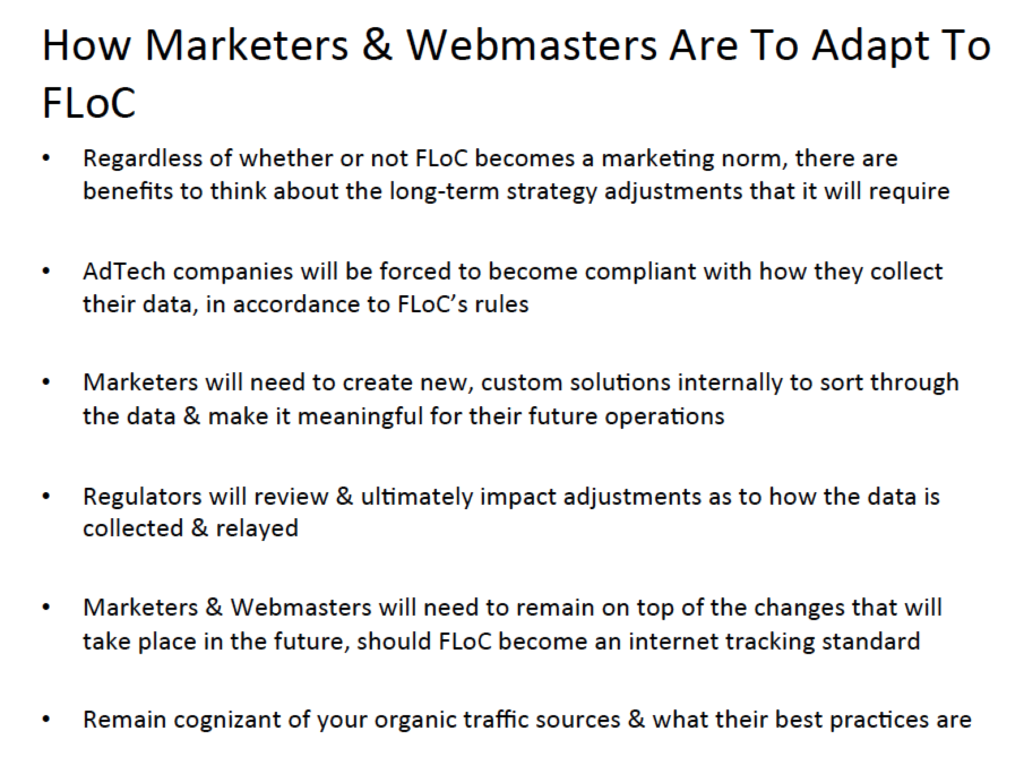
For The Full PDF Presentation: